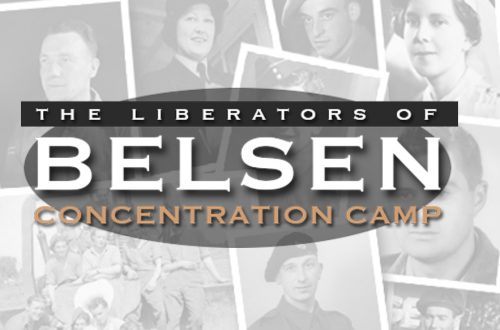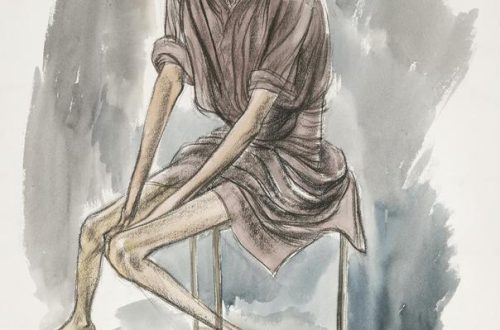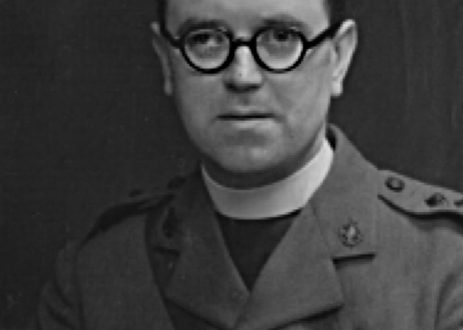Rev Edwin Oliver Sutton – 11th Armoured Divison
These last few months have been an incredible journey of discovery of the story and service of my grandfather, a Methodist minister and army chaplain, serving from 1940 – 1945 with the 11th Armoured Division.
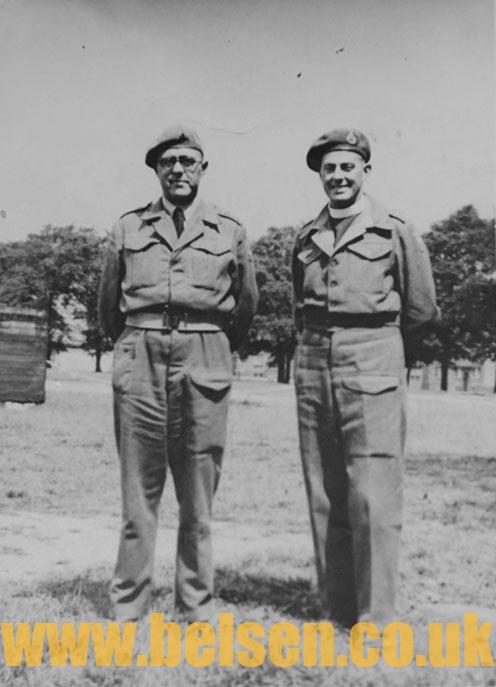
I had only learnt an anecdotal story a couple of years ago from the family that my grandfather had been part of the early liberators into the Bergen-Belsen concentration camp, but apart from the headline, very little was known.
A family story of striped pyjamas
The anecdotal story I had heard, was that my grandfather had witnessed the atrocities of one of the German camps, known by the family to be Belsen. Like so many others, he rarely spoke to the family about it after, but, there was a story of a new pair of pyjamas – my grandma, a chaplain’s wife, had queued for ages in the January sales (back then a yearly event, and quite an occasion), and had been pleased that their purchases using precious clothing coupons, including amongst other things a new pair of pyjamas for my grandfather.
The pyjamas were blue and white striped pyjamas. When she gave them to him, much to her surprise, he took one look at them, and later quietly put them in a drawer, where they were to stay for a long time. Years later, my aunt was to learn from my grandma that this was because they reminded him of the “uniform of Belsen”. After witnessing the prisoners in the striking prison uniform, he could not bring himself to wear pyjamas of the same pattern.
Over the last few months through a lot of family research, contact with the Holocaust Education Trust, and some amazing connections through social media, the picture that has emerged of my grandfather has been far more well-rounded that anything we had known before, and also given much insight into the role of an army chaplain in the war, which has been little talked about before.
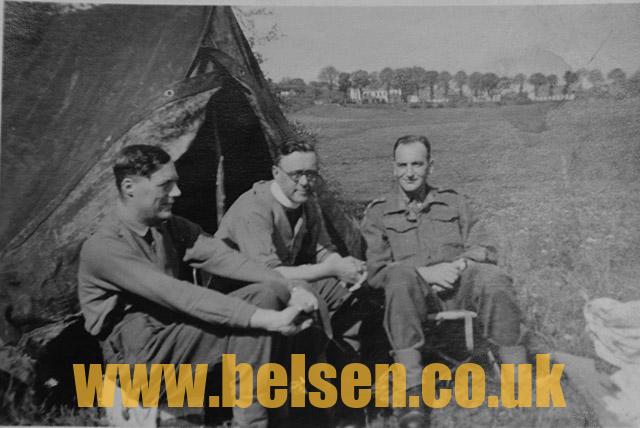
A fresh lead in the research
A significant turn of the research took place was when I was contacted by the researcher, Rob Thompson, who had been writing his MA on the role of chaplains in the liberation of Bergen-Belsen. Rob contacted me after I had tweeted on Holocaust memorial day about my grandfather and his place as one of the early liberators of the Bergen-Belsen concentration camp.
After a short conversation and sharing my grandfather’s name, Rob let me know that he had found a letter in the archives of the Methodist recorder, which held the same name. He had discounted it from his research as there was nothing in the letter that could tie it to Belsen. BUT, once I could tell Rob what the family knew (from my grandfather’s obituary and service details), that framed the letter in a fresh light.
A letter in the Methodist Recorder relating to the liberation of bergen-belsen
‘German Concentration Camps’ – The Rev E O Sutton, CF, BLA writes:
“It may be of help to some to have the word of a Methodist Chaplain upon the reports and photographs of German concentration camps captured by British troops. I have seen one of these camps. I can only attest that reports and photographs make no exaggeration. There is no need for me to describe again these shocking scenes. They are in a class by themselves, beyond any horror of battlefield or bombing. Let there be no doubt about it, these camps are not atrocity stories, but abominable facts. Dead and dying, fear and terror, evil and cruelty. I do not desire to enter into anything of a controversial nature. But these camps must not be left out of our thinking when we are dealing with the complexities of the German question. They are facts.”
(This letter was published in the Methodist Recorder, 10th May 1945. A complete record of the Methodist Recorder can be found at the Oxford Centre for Methodism and Church History.)
Shedding new light
In the course of Rob’s research, he had not found any documentation from chaplains that had been part of the first wave of liberators, but had a number of testimonies from chaplains that had come after in the humanitarian relief. Through the comparison of my grandfather’s service record and his obituary, it could be shown without a shadow of a doubt that he would have been in the first wave of the liberation of Bergen-Belsen.
Reading the letter for the first time
Reading the letter for the first time was an amazing experience – to hear the voice of my grandfather, a man who I’d never met, coming alive through the words was incredible. And to know he had documented such important truth.
As soon as I read the letter, I knew that the camp my grandfather was referring to had to be Belsen. When I checked with my family, I knew that we had found something special – everyone was aware that my grandfather had never spoken about the war after the events themselves, so to have a letter where he was so raw in his honesty and experience was indeed precious.
For me, the most striking line of the letter is “Beyond any horror of battlefield or bombing” – my grandfather would have seen both battlefields, and also the effects of the severe bombing on London and Plymouth, and yet still he felt that the concentration camps were a worse horror – that’s awful. In my documentary career, I interviewed a number of war veterans who had witnessed both the carnage of the bombs, and the bloodshed of the battlefields. For a man to have seen both to say the first sight of the camp was worse, God knows what sights greeted the liberators of the camp.
A familiar voice
The tone that my father’s inherited can also be found in this letter – my father has inherited his father’s active compassion and astute sense of injustice, but also a very controlled way of speaking respectfully, even amongst the most difficult of circumstances. I can imagine that my grandfather would have been incredibly self-controlled in what he says in the letter, and yet burning inside with the conviction he felt to tell the world that the atrocities in these camps were like no other he’d ever known.
What next?
The whole research is not over by a long way, and I’m hoping that by sharing his story that it can inspire others, and also help us to find other connections that may have been lost. We are now working together as a family to see what other documents can be found, and also piece together my grandfather’s movements in the war. It’s also been lovely to see his story commemorated by the Holocaust Education Trust.
I am so proud of him for the role that he played in the war, and of the way that he used the experiences afterward to bring hope and strength to so many, and it’s lovely that we have a much clearer story to pass onto his soon to be arriving great-grandson. I am also keen to find out if there are any other testimonies that have survived from liberators, particularly from anyone who would have been part of my grandfather’s regiment.
Anne Buckland
10,932 total views

